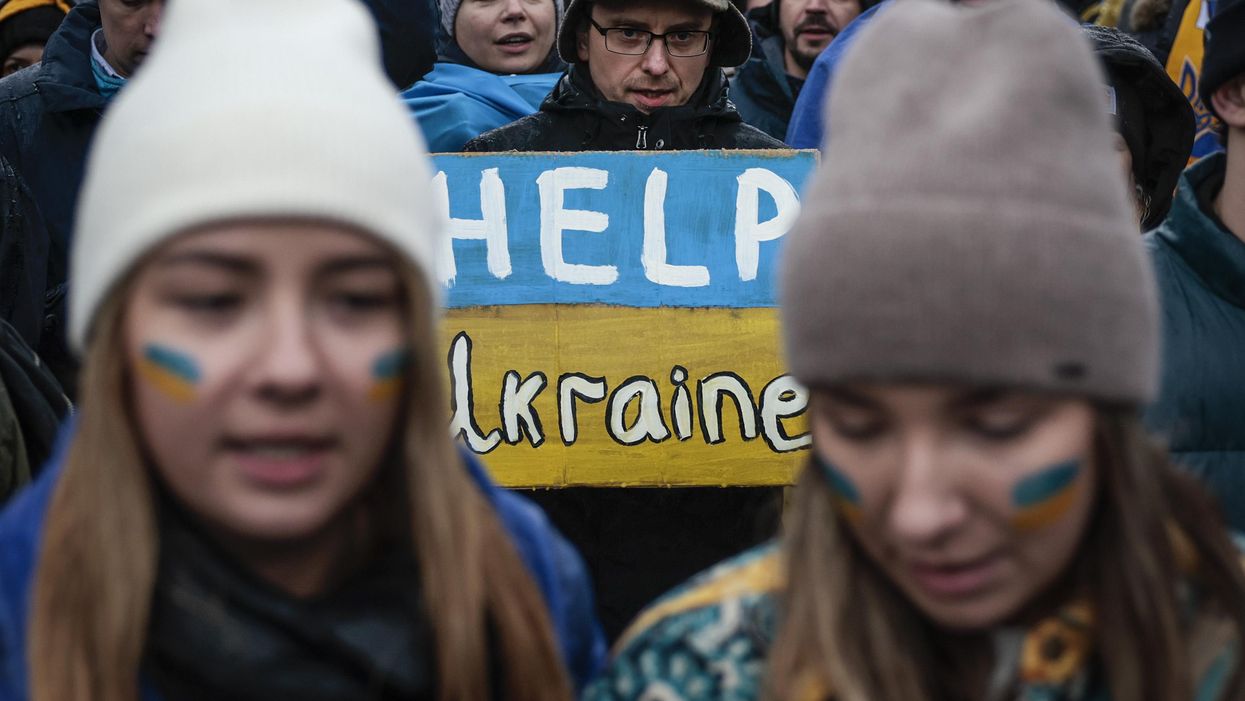John Lennon's son Julian has said for years he would never sing his father’s iconic song “Imagine” in public.
Three days ago he broke that pledge, explaining:
“The war in Ukraine is an unimaginable tragedy. ... As a person and as an artist, I felt compelled to respond in the most significant way I could. So, today I publicly performed my dad's song IMAGINE for the first time. Why now, after so many years? I have always said that the only time I would ever think about singing "IMAGINE" would be "The End of the World.” … But also because its lyrics reflect our collective desire for world peace. Because in this song we are transported to a space where love and togetherness become our reality, if only for a moment. ... The song reflects the light at the end of the tunnel that we all hope for.”
As we watch the horrid news from Ukraine, we all want to "Imagine"as John Lennon did almost 50 years ago. We want to imagine a new and better normal emerging from this nightmare.
Yet it's fair to wonder if we are merely the dreamers whom Lennon sang to, "hoping someday you'll join us." Yet perhaps today, for this brief moment, it doesn’t matter if there is a naivete surrounding the words of “Imagine.” Just having a moment of hope, an inner peace, is helpful during these times.
As a nation, music has brought us together before. In 1985, our country banded together and sang "We Are the World" to fight famine in Africa.
Those lyrics from 35 years ago resonate today as we experience another humanitarian crisis: "There comes a time / when we heed a certain call, / when the world must come together as one. / There are people dying / oh, and it's time to lend a hand to life / — the greatest gift of all."
We are all consumed with the daily news from Ukraine; the gruesome visuals, the military analysis, and the political statements — but it is the artists who give us an opportunity to reflect.
Nina Simone, an American singer, songwriter, and civil rights activist, spoke about the role of artists in society before her passing in 2003:
"An artist's duty, as far as I'm concerned, is to reflect the times. I think that is true of painters, sculptors, poets, musicians. As far as I'm concerned, it's their choice, but I CHOOSE to reflect the times and situations in which I find myself. That, to me, is my duty. And at this crucial time in our lives, when everything is so desperate, when everyday is a matter of survival, I don't think you can help but be involved.”
On April 8, Julian Lennon felt he had no choice despite his sacred pledge not to sing his father’s song. As an artist, how could he choose not to reflect the times we are all living though? That is the very definition of an artist.
And what better way to do so than through the words of his father with the same empathetic voice and heart:
“Imagine all the people
Livin' life in peace
You
You may say I'm a dreamer
But I'm not the only one
I hope someday you'll join us
And the world will be as one”
Thank you, Julian.




















